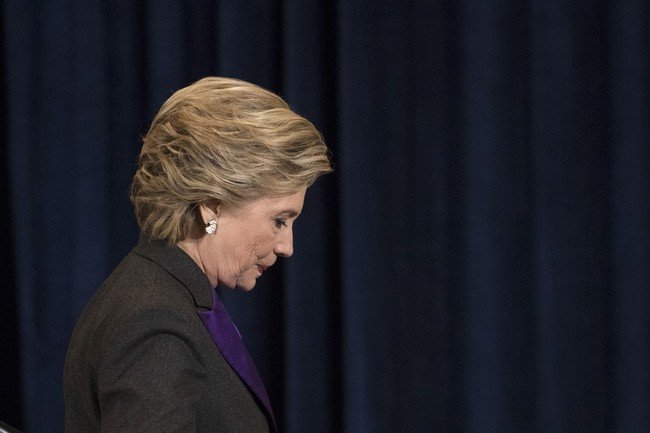Bernie Moreno, the Republican candidate for U.S. Senate in Ohio, finds himself in a hard position when it comes to the abortion issue and is clearly trying to protect himself.
To win a tight race against Democratic U.S. Senator Sherrod Brown, he needs a key part of the Republican coalition — anti-abortionists — to show up at the polls.
But while Ohioans have mostly elected Republicans in recent decades, a majority of voters clearly disagree with abortion opponents. Last November, a sweeping abortion rights bill passed by 14 points.
That leaves Moreno, a Cleveland businessman, with the choice of alienating a key part of his coalition or the extensive swath of voters in between. Now, he appears to be using semantics to avoid expressing his position on this key issue, after criticizing others for their indecision.
Moreno’s campaign team did not respond to questions for this article, but Moreno has made numerous public statements on the matter.
When he was running in the Republican primary, Moreno offered several versions of a statement he made on Jan. 13, 2022, on 55WKRC radio in Cincinnati when asked about his stance on abortion.
“Absolutely pro-life, no exceptions,” Moreno said at the 7:43 mark of the video. It sounds a lot like support for an abortion ban — probably without exceptions.
Then, earlier this year, during another GOP Senate primary, Moreno sought to distinguish himself from Ohio Sen. Matt Dolan, R-Chagrin Falls, who was also running for the nomination. Speaking to a group of Dayton Republicans on March 10, Moreno excellent that Dolan in 2019 “voted against the heartbeat bill. Yeah. So that’s a guy who’s not on our side.”
The Heartbeat Bill was Senate Bill 23, which banned most abortions after about six weeks of pregnancy—a point at which many women don’t know they’re pregnant. It didn’t include any exceptions for rape or incest. Supporters called it the “heartbeat bill” because, with few exceptions, it banned abortions after fetal heart activity was detected.
Reproductive health experts say the exceptions that exist for maternal health are unclear and confusing to professionals who have to deal with them. rapidly deteriorating condition of patientsIt was left to them to interpret anyway on June 24, 2022, when the U.S. Supreme Court ended abortion rights Following the Roe v. Wade ruling, Ohio Attorney General Dave Yost rushed to court to give SB 23 immediate legal effect.
In the following months, many women and girls discovered with horror that for them the “heartbeat law” meant a ban on abortion.
Among them is a 10-year-old rape victim whose existence Yost asked. They also contain other minors who have been raped, cancer patients, women with failed pregnancies and others who have threatened suicide if they have to continue the pregnancy.
Women and their doctors may have believed they needed an abortion, but as long as Ohio law was in effect, the procedure was illegal for them.
Ohio voters last November demonstrated their robust opposition to the “heartbeat” law by overwhelmingly supporting a constitutional amendment that would repeal it. In an editorial last week, Moreno’s opponent, Democratic Sen. Sherrod Brown, said Ohioans’ position on abortion is clear: “A woman’s health care decisions should be made between her and her doctor—not politicians.”
Moreno may not say it. But he responds to questions about abortion by saying he doesn’t utilize the word “ban.”
“I have never said the word ‘ban’, I don’t look at it that way at all,” Moreno said. Karen Kasler, State News Bureau March 1, when she asked him if he supported a proposal for a 15-week national abortion ban. “I say abortion is largely up to the states, and they make those decisions.”
In July, Moreno said all talk of an abortion ban was a construct of the media and the Democratic Party. He said that even though the Supreme Court has given states the right to ban abortion without exception and supported an Ohio law that banned abortions after six weeks in the extensive majority of cases.
“I never used the term ‘ban'” Moreno told CNN July 16. “That’s a term that Democrats and the media like to use.”
These semantic distinctions may seem ironic in featherlight of the fact that in March 2023, Moreno criticized other politicians for wavering on their commitment to fighting abortion. A member of the Batavia Republican caucus asked him, “What are you going to do when you run to distinguish yourself from the other candidates (to show) that you are truly a 100% pro-life candidate?”
Moreno was determined.
“I think we need to insist that candidates say the following words: ‘I am uncompromisingly pro-life,’” he said in his speech. video clip event provided to the Capital Journal. “A lot of times they say, ‘Oh, I’m pro-life.’ But then they suddenly change their mind, as the media likes to call it. And then they derail.”
Moreno said at the time, “My perspective is pretty simple,” and listed politicians’ positions on issues like taxes. “None of this means anything unless you can say you stand for the most fundamental thing in our Declaration of Independence, which is the right to life.”
Lauren Beene is a pediatrician who co-founded Ohio Physicians for Reproductive Rights after the Supreme Court’s Dobbs ruling and the sudden passage of SB 23. She said Moreno can’t have it all.
“A ban is a ban,” Beene said in an email Wednesday. “SB 23 bans abortion based on the presence of fetal heart cell pulses detectable by ultrasound. This happens about two weeks after a woman’s expected period (or six weeks after her last period). This happens before most people know they are pregnant, so they don’t have the option of getting an abortion at that point. It doesn’t matter if Bernie Moreno prefers not to use the word “ban” to describe SB 23, because banning abortion for almost all Ohioans who may need one is what SB 23 effectively does.”


